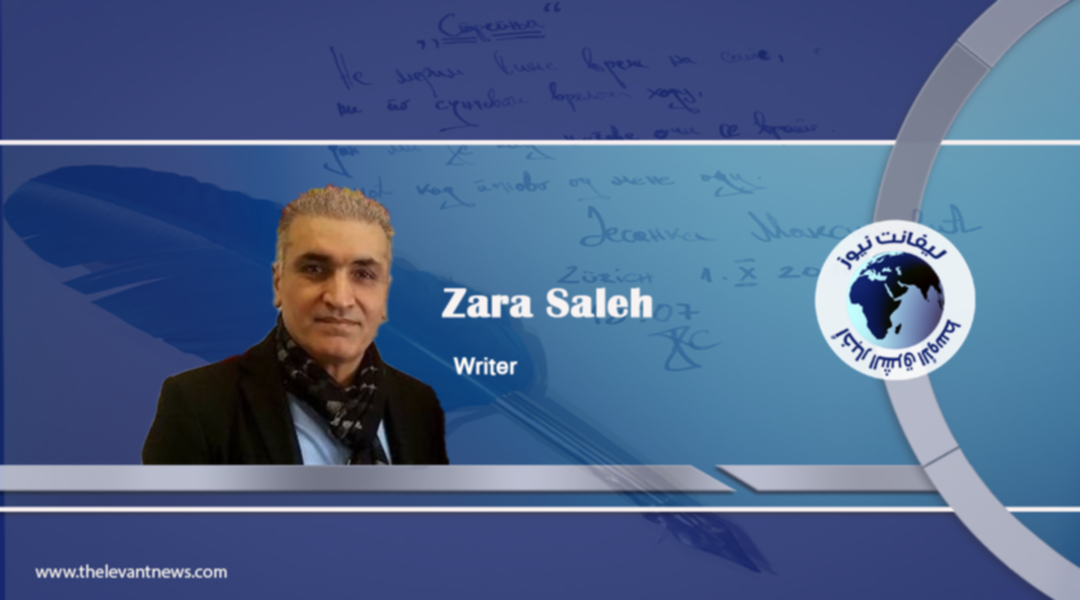-
The controversial partnership between the two sponsors of the Assad regime, Moscow and Tehran

Despite the fact that Russia and Iran are the major sponsors of the Syrian regime due to mutual interests, and their partnership also is based on pragmatic reasons during the Syrian conflict. For example, in the military aspects, both countries are engaged with the key positions in the Syrian security forces and the Syrian military as well in purpose to maintain their decision-making influence. While Iran is trying to keep the presence of the Islamic Revolutionary Guards Corps (IRGC) and the other Shia militias affiliated with them such as Hezbollah and Iraqi Shia militia groups. Whereas the Russian essential role is to support and renovate the Syrian National Army. Furthermore, in 2015 Moscow started the military intervention to save the Assad regime by sending the air forces and that was also Iran's idea through the former Iranian leader Qasem Soleimani who was behind convincing the Russian President Vladimir Putin and cooperating with Iran. Later on, with the changing dynamic on the ground in Syria, Russia began a new initiative with Iran and Turkey as co-guarantors through the Astana Process as a parallel process to the UN-led Geneva talks for Syria to strengthen Assad’s legitimacy. However, both two countries do not share the same insights into Syria's future, and they’ll have to face serious strategic challenges on the ground.
At the same time, it has been obvious through the potential disagreement between the two allies. Tehran and Moscow have always been in competition as attempting to get access to the Syrian economic resources. Iran, on the other hand, has recently signed an agreement with the Iraqi government to implement the construction of a railway between Iran and Iraq known Shalamcheh-Basra railway. The project is expected to take place within the next month that aimed to establish a channel with Syria. It seems like a part of Syria's reconstruction deal as Iran is planning to do with its strategy to reconnect Tehran with Lebanon through Iraq and Syria. Consequently, it will entrench the Iranian influence and will be in advance of Tehran Shia logistic plan and to occupy more Arab countries in the Middle East.
Once the Syrian conflict enters the post-conflict reconstruction phase, Moscow and Tehran will almost continue to expand their influence and competition to get access to the main economic resources such as the energy sectors and phosphate mining. As both countries desire to recover financially their military cost of intervention in the Syria civil war. They also might continue to collaborate at some levels that entrench the legitimacy of the Syrian regime to return to the Arab League and to undermine the American Caesar sanctions. Such sanctions have already blocked the foreign investments to enter Syria and to participate in the reconstruction process in the post-conflict.
As a result, the growing Iranian military presence on the ground with Hezbollah and carrying heavy weapons will affect the security sectors and would exacerbate the state of military-civil relations in Syria. That will definitely, lead to more Israeli airstrikes on Hezbollah and Iranian bases which Russia has already agreed with the US and Israeli government as it was such a red line for Tel Abib. Consequently, Russia-Iran unravelling marriage of convenience might end up due to the increasing divergences in the battle of influences and that will pit them against each other as they don't share the same vision about Syria's future as a long-term strategy.

BY: Zara Saleh
Tags
You May Also Like
Popular Posts
Caricature
BENEFIT Sponsors BuildHer...
- April 23, 2025
BENEFIT, the Kingdom’s innovator and leading company in Fintech and electronic financial transactions service, has sponsored the BuildHer CityHack 2025 Hackathon, a two-day event spearheaded by the College of Engineering and Technology at the Royal University for Women (RUW).
Aimed at secondary school students, the event brought together a distinguished group of academic professionals and technology experts to mentor and inspire young participants.
More than 100 high school students from across the Kingdom of Bahrain took part in the hackathon, which featured an intensive programme of training workshops and hands-on sessions. These activities were tailored to enhance participants’ critical thinking, collaborative problem-solving, and team-building capabilities, while also encouraging the development of practical and sustainable solutions to contemporary challenges using modern technological tools.
BENEFIT’s Chief Executive Mr. Abdulwahed AlJanahi, commented: “Our support for this educational hackathon reflects our long-term strategic vision to nurture the talents of emerging national youth and empower the next generation of accomplished female leaders in technology. By fostering creativity and innovation, we aim to contribute meaningfully to Bahrain’s comprehensive development goals and align with the aspirations outlined in the Kingdom’s Vision 2030—an ambition in which BENEFIT plays a central role.”
Professor Riyadh Yousif Hamzah, President of the Royal University for Women, commented: “This initiative reflects our commitment to advancing women in STEM fields. We're cultivating a generation of creative, solution-driven female leaders who will drive national development. Our partnership with BENEFIT exemplifies the powerful synergy between academia and private sector in supporting educational innovation.”
Hanan Abdulla Hasan, Senior Manager, PR & Communication at BENEFIT, said: “We are honoured to collaborate with RUW in supporting this remarkable technology-focused event. It highlights our commitment to social responsibility, and our ongoing efforts to enhance the digital and innovation capabilities of young Bahraini women and foster their ability to harness technological tools in the service of a smarter, more sustainable future.”
For his part, Dr. Humam ElAgha, Acting Dean of the College of Engineering and Technology at the University, said: “BuildHer CityHack 2025 embodies our hands-on approach to education. By tackling real-world problems through creative thinking and sustainable solutions, we're preparing women to thrive in the knowledge economy – a cornerstone of the University's vision.”
opinion
Report
ads
Newsletter
Subscribe to our mailing list to get the new updates!




















